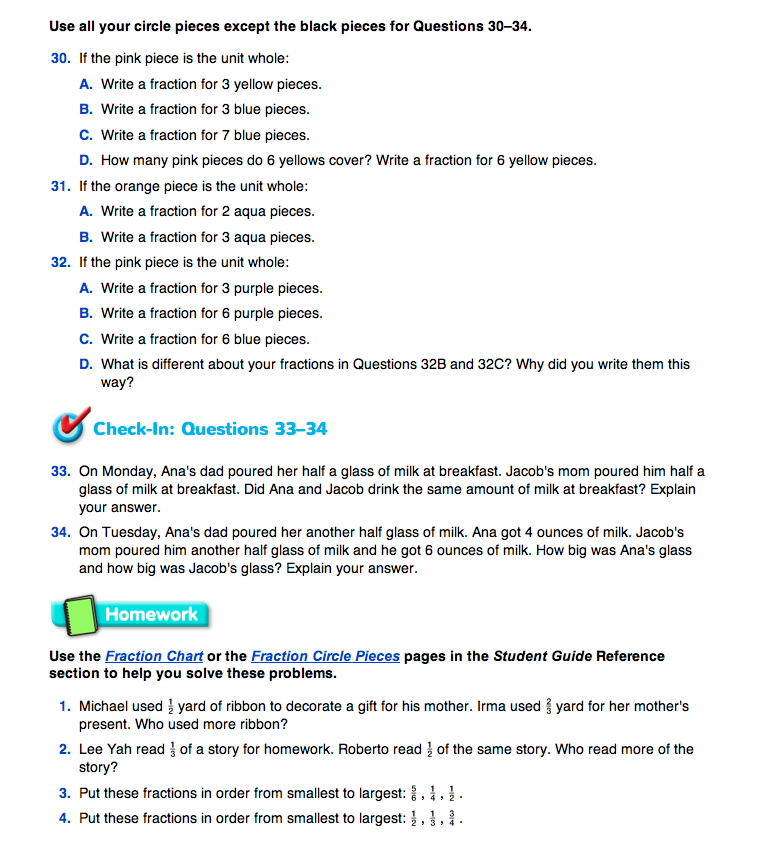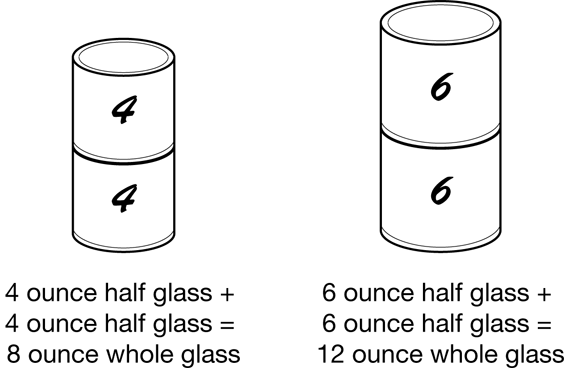Once students have completed Check-In: Questions 33–34, take time to discuss the problems. For Question 33, students are asked to recognize that the same fractional parts of different-sized unit wholes are not equal.
Reread the question comparing two different wholes aloud and ask:
- What important information do we know in this problem? (Ana drank a half glass of milk and Jacob drank a half glass of milk.)
- What do we need to know in order to solve the problem? (How big Ana's glass is and how big Jacob's glass is.)
- What is the unit whole in this problem? (There are two different unit wholes. One is Ana's glass and one is Jacob's glass.)
- Are the unit wholes the same size? Explain. (We don't know because we don't how big the glasses are. They are probably not identical glasses.)
- Are the half glasses of milk the same size? (Probably not. When the wholes are different sizes, the fractional parts—in this case, the halves—are not equal.)
- Are you able to tell who drank the most milk in this problem? (No)
Review Question 34. For this question, students are asked to identify the unit whole when given a fractional part of a whole.
Reread the question aloud and ask:
- What important information do we know in this problem? (We know they each got a half glass of milk and we know how many ounces of milk that was.)
- What do we need to find out? (How big their glasses were, or what the wholes are.)
- What is the unit whole? (There are two. Ana's whole glass is different than Jacob's whole glass.)
- Whose glass, or whole, is bigger? (Jacob's)
- How did you determine the size of each whole? (Possible response: I drew a picture. See Figure 6. I knew that Ana's half was 4 ounces, so her whole would be double that or 8 ounces. I knew that Jacob's half was bigger. It was 6 ounces. I doubled that and got 12 ounces.)
- Is it possible to have two different-sized wholes? (Yes)
- Is it possible to have two different-sized halves? Fourths? Thirds? Explain. (Yes, because when the wholes are different sizes, the fractional parts are different sizes.)
- Can you give an example? (Possible responses: half of this movie is a different length than half of that movie; a fourth of this book is a different number of pages than a fourth of that book.)
- Is it possible to find half the length of a movie, or a fourth of the book? (Yes, because both can be divided into equal parts.)
- If given half the length of a movie, can you find the whole? (Yes. I could just double the half to find the whole.)













